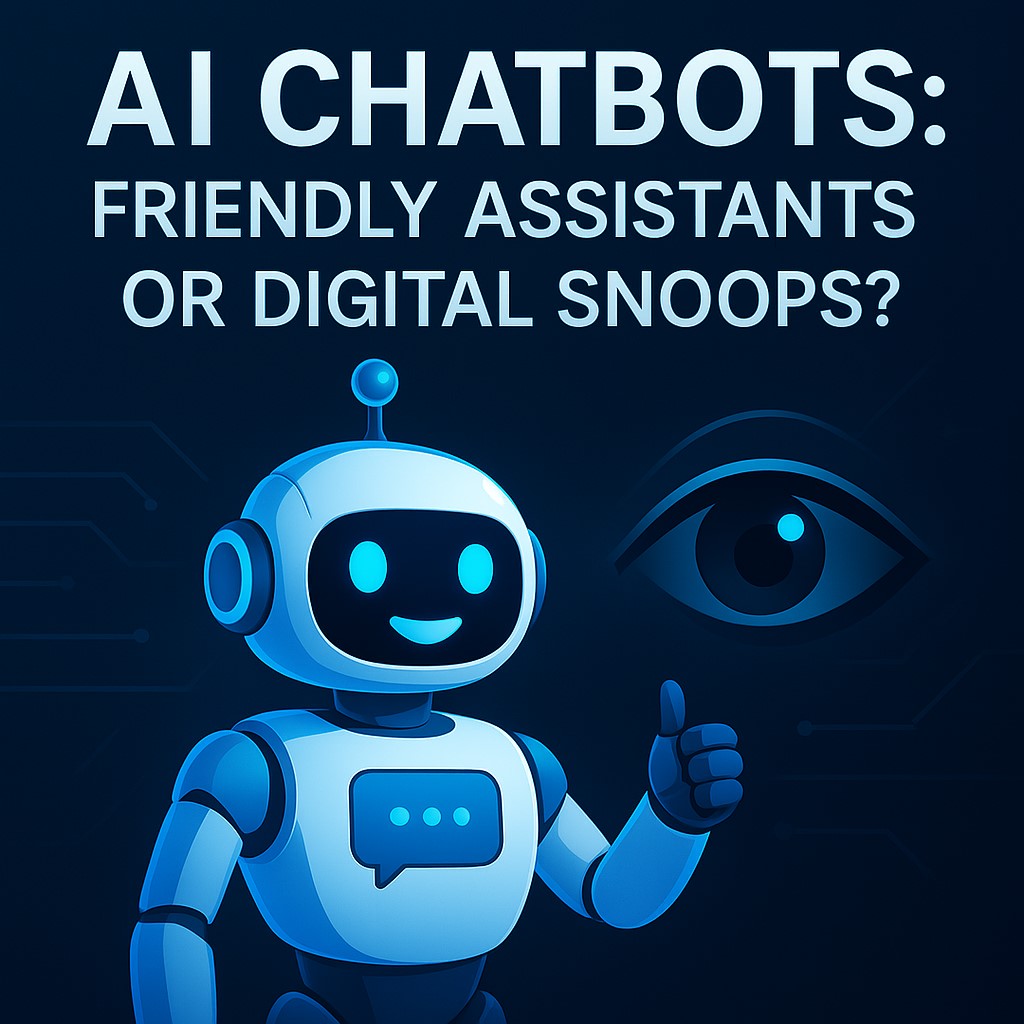The Dark Side of Chatbots: Who’s Really Listening to Your Conversations?
3 Apr 2025AI tools like ChatGPT, Microsoft Copilot, Google Gemini, and the newly launched DeepSeek have changed how we engage with technology. From writing emails to planning your budget-conscious grocery list, these chatbots promise to simplify life and boost productivity.
But as they become more embedded in our daily routines, the conversation is shifting from convenience to caution. Have you ever stopped to consider what actually happens to the information you share with these bots?
They're always active, always listening, and always collecting data about you. Some platforms are more transparent than others, but make no mistake: data collection is a central part of how they operate.
So, how much of your personal data is being harvested and where is it going?
How Chatbots Collect and Use Your Data
When you engage with a chatbot, your input isn’t just used to generate a reply and disappear. Here’s how your data is typically handled:
Data Collection
Chatbots use your input including personal details, business content, or sensitive information to tailor their responses.
Data Storage
Depending on the provider, your data might be stored temporarily or indefinitely. Here's a quick look at some of the leading platforms:
- ChatGPT (OpenAI): Collects your prompts, device and location data, and how you use the service. Some of this information may be shared with vendors to help “improve performance.”
- Microsoft Copilot: In addition to prompts and device info, Microsoft logs your browsing activity and app usage. This data may be used for personalized ads and AI model training.
- Google Gemini: Conversations may be stored for up to three years even if you delete them. Google claims this data won’t be used for targeted ads, but policies can change, and human reviewers may access chat history.
- DeepSeek: One of the more aggressive players, DeepSeek collects everything from chat logs to location, typing behavior, and device info. All used for targeted advertising. Notably, its stored on servers located in the People’s Republic of China.
Data Usage
Most chatbot providers use this data to improve services and train models. But that raises major concerns around consent, transparency, and control.
What Are the Risks?
Privacy Breaches
Sharing sensitive data with chatbots could open the door to misuse, unauthorized access, or leaks. Microsoft’s Copilot, for example, has drawn criticism for potentially overexposing internal documents due to excessive permissions. (Concentric)
Security Vulnerabilities
Malicious actors have found ways to exploit chatbot platforms. Research shows Microsoft Copilot can be manipulated to conduct spear-phishing campaigns and extract sensitive information. (Wired)
Compliance Pitfalls
Failure to comply with data privacy laws like GDPR can spell legal trouble. Some organizations have already banned tools like ChatGPT over these concerns. (The Times)
How to Protect Yourself
Whether you're using AI tools personally or professionally, here’s how to minimize the risks:
- Think Before You Type: Avoid sharing anything sensitive, confidential, or personally identifiable unless you're absolutely sure it’s safe.
- Check the Privacy Policy: Understand how your data is used and stored. Some platforms allow you to opt out of data sharing or retention.
- Use Built-In Privacy Tools: Enterprise solutions like Microsoft Purview offer control and governance features to help manage AI-related risks.
- Stay Updated: Privacy policies and terms of service evolve, make it a habit to stay informed.
Bottom Line: Stay Smart, Stay Secure
Chatbots and AI assistants offer incredible productivity boosts, but it’s important not to sacrifice security for convenience. Knowing how your data is used and taking simple steps to protect it can help you leverage AI without putting your business or privacy at risk.
Ready to take the next step in protecting your business?
Get a FREE Network Assessment to identify vulnerabilities and lock down your data before the next threat hits.





08 8922 0000